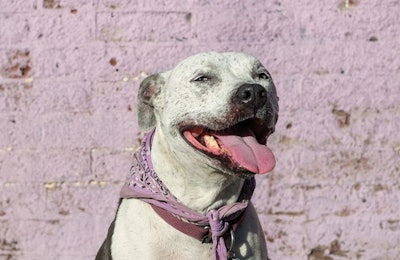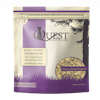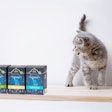
There were 600,000 vegans in the UK in 2018, quadrupling from 150,000 in 2014, according to The Vegan Society. The UK was also number one in terms of new vegan product launches in 2018, and as an animal-loving nation it makes sense to see this trend continue into the pet industry.
Why are consumers choosing vegan pet food?
It’s not just vegan owners putting their pets on plant-based diets; non-vegan consumers buy vegan pet food too. Organic pet food manufacturer Yarrah started producing vegetarian kibble for dogs in 1995 and after a few years it made the transition to being completely vegan.
“Contrary to what a lot of people think, it wasn't introduced to the market back then to give vegetarians the option of feeding their dogs a meat-free diet,” said Jolanda Huizing, Yarrah marketing project manager. “The food was primarily intended for (and pre-eminently well-suited to) dogs that don't get on well with animal proteins.”
Can animals thrive on a vegan diet?
Vegan cat food is a more contentious issue than dog food, as cats are, according to experts, obligate carnivores that need certain nutrients (like taurine and arachidonic acid) from meat. While taurine can be synthesized and added to cat food, not all vegan cat owners are confident in giving their pets a plant-based diet — it remains to be seen how vegan cat food sales may fare in the future as veganism in humans continues to rise.
Even some dog owners have questions about the suitability of vegan food for their pets, said Huizing.
“We can reassure them that a dog can thrive on a plant-based menu as long as the necessary vitamins and minerals are provided (like vitamin B12, taurine and L-carnithine),” she said. “So just giving a dog veggies in a bowl does not suffice: vegan dog food has to be well balanced to make it a complete and nutritionally appropriate feed.”
Moving toward plant-based recipes
While some manufacturers only produce vegan foods, others like Yarrah offer both vegan and non-vegan formulas. UK business Beco Pets, known for the company’s ethos of sustainability and eco-friendliness, will be adding complementary wet dog food to its current range in 2019.
“As wet food, along with treats, won’t be a complete food, we can focus on using more plant-based ingredients,” said company founder George Bramble. “We’re happy with the fact that consumers are caring about where our ingredients come from.”
Vegan pet food may have been seen as a passing fad when it first came onto the market, but in the UK, as in the rest of the world, this is a trend to watch in the pet food space as more human consumers turn to veganism themselves.


















